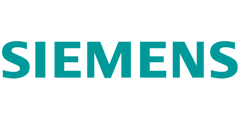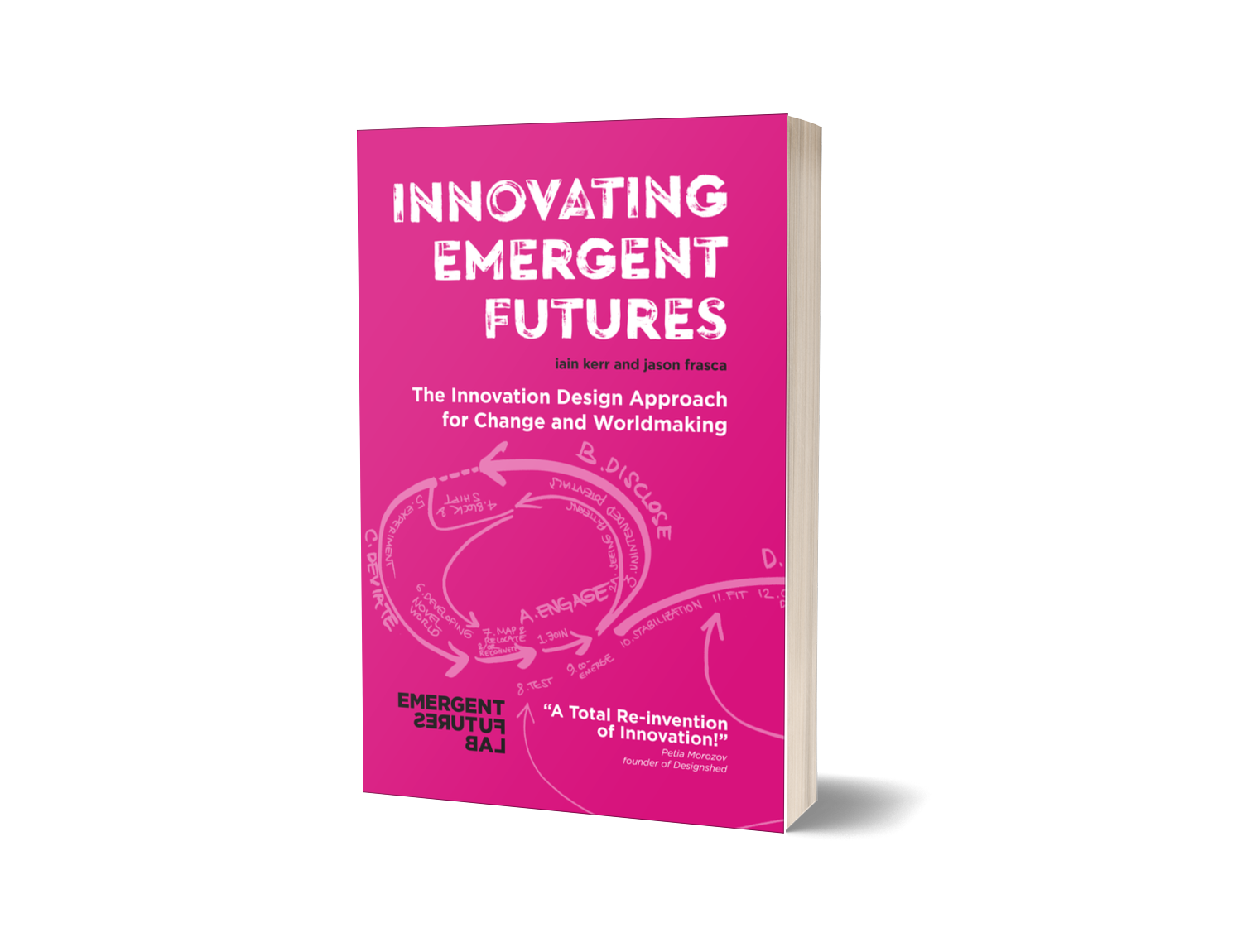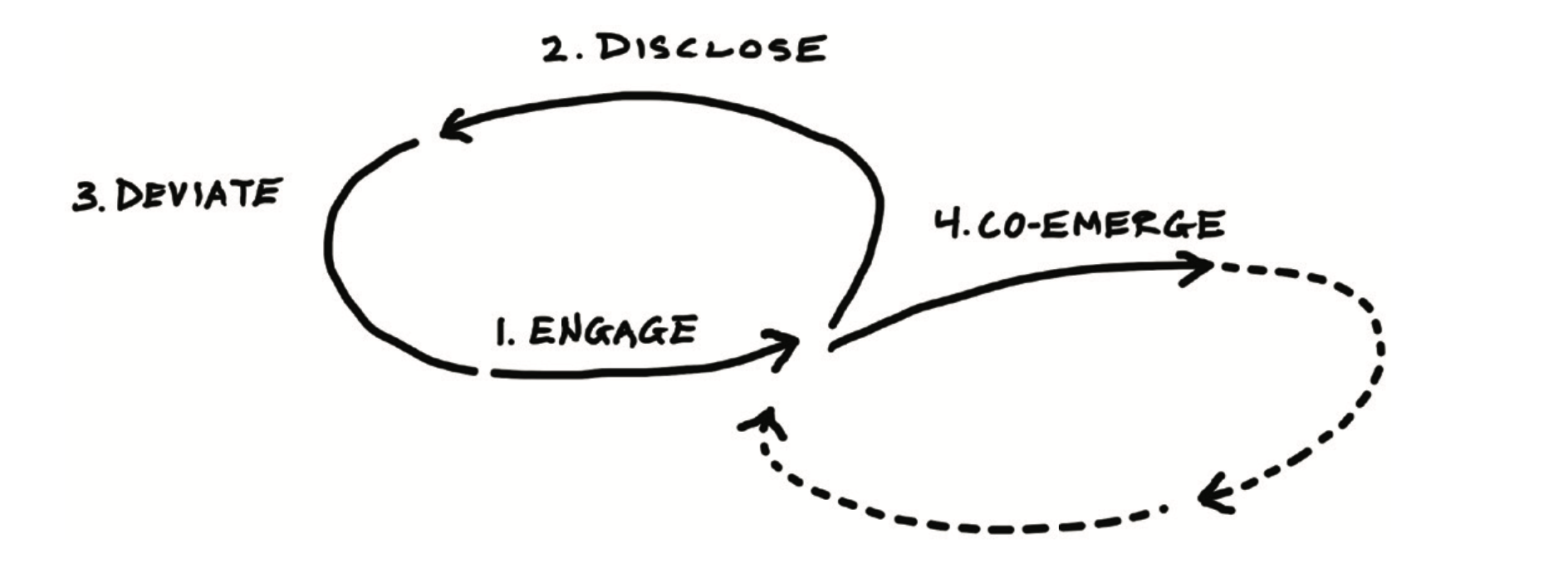In this inaugural interview of the Siemens Xcelerator Community Thought Leadership series, David Erhard, host of the Xcelerator Community, and Bill Johnston of Structure3C speak with Jason Frasca and Iain Kerr, co-authors of Innovating Emergent Futures and co-founders of the Emergent Futures Lab.
In a wide-ranging conversation, they interrogate the dominant “ideas-first” approach to innovation and introduce an experience-based ecological methodology. Drawing on examples from evolutionary biology, public transit, and their own academic and consulting work, they lay out a provocative case for why innovation must begin not in the mind, but in the world.
On the Limits of “Ideas-Based” Innovation
Frasca and Kerr begin by challenging the assumption that innovation starts with good ideas.
“Classically, we think and define creativity and innovation as all about ideas—coming up with new ideas and then putting them into action,” said Kerr. “It’s a kind of ideate-plan-make model.”
But this approach breaks down when we’re trying to create something truly new:
“If something’s really innovative and novel, we don’t have the words, we don’t have the images—it doesn’t exist. So how could you ideate it whatsoever? There’s a logical fallacy there… we’re barking up the wrong tree.”
Instead, he argues, “[Novel] ideas emerge. Ideas come late in the process.”
The Four Tasks: Engage, Disclose, Deviate, Co-Emerge
Bill Johnston asked the duo to unpack the framework outlined in their book.
Kerr explained: “If ‘ideate’ is usually thought of as the first step, we want to completely shift to something like ‘engage’—where you’re genuinely embedded in something. You understand it in an embodied, experimental way.”
He described “Disclose” as a process of identifying and blocking the familiar logics that typically go unquestioned: “You’re not trying to figure out what should we do… you’re doing the opposite—what should we not do?”
“Deviate,” he continued, is about leaving behind established frameworks and “developing a new way of thinking about it, framing it, engaging it.” And finally, “Co-emerge” refers to “bending the new direction into something practical and impactful.”
Frasca added: “They’re all kind of happening all the time in varying degrees and looping back and forward upon each other.”
World-Making: More Than Changing Your Mindset
In response to a question about the concept of “world-making,” Kerr said:
“You could say we have to change our worldview… but all of that is disembodied. It’s about ideas. We say: get out there, poke around, stumble on things. We’re not creatures who live in our heads—we do things, and as we do things, we change our environment, and our environment changes us.”
He stressed that this approach is fundamentally different from “imagining you’re going to innovate from a room with fake grass and whiteboards.”
“We’re in the middle of ongoing world-making… as we shift the world, new possibilities emerge.”
Practical Wisdom for Innovators: Asking “What Can This Do?”
When asked what advice they would offer to members of the Siemens Xcelerator Community—many of whom work in complex, high-stakes industrial settings—Frasca and Kerr emphasized the importance of reframing how we perceive challenges and opportunities.
Frasca offered a story he and Kerr often use to kick off workshops:
“We show a picture of a four-way intersection with a traffic light and a holiday nutcracker next to it. We ask: ‘Are these the same thing?’ Most people say, ‘Of course not.’ But then we tell the story of crows in Japan.”
“Crows perch on wires near intersections. When the light turns red, they swoop down, drop a nut in front of the stopped cars, then fly back up. When the light turns green, the cars crack the nuts. The light turns red again, and the crow comes back to collect its meal.”
“To the crow, the intersection is a nutcracker. It doesn’t ask, ‘What is this?’ It asks, ‘What can this do?’ And then, ‘What else can this do?’”
That mindset—asking what systems and tools can do, not what they are—is foundational to emergent innovation.
Frasca concluded: “At some point, we have to leave our heads and engage physically with the thing we’re trying to innovate. That means embodying, experimenting, and actively doing—because that’s where the real insights come from.”
Kerr built on this by advocating for an organizational shift in mindset and practice: “Trust your people. Trust your ecosystem. Run workshops that let people experience this emergent, experimental logic firsthand. Don’t focus on generating better ideas—focus on creating the conditions where novel possibilities can emerge.”
“You want to create an ecosystem that shifts from generating the same outcomes every day to one that can also produce something new. That means redesigning how teams work, how HR supports innovation, how space and time are allocated. It’s not about having an innovation team off to the side—it’s about enabling innovation to spontaneously emerge across the organization.”
Their combined advice is a powerful invitation: Think like a crow, act like a system. Block assumptions, follow affordances, and trust that novel outcomes will co-emerge—not from the top down, but from the inside out.
Wrapping It Up
Throughout the conversation, one theme remained unmistakably clear: innovation is not a detached or abstract exercise. Frasca and Kerr don’t just offer a new method; they invite a fundamental shift in how we perceive innovation itself. For leaders navigating complexity, their message is clear: transformation begins not with better ideas, but with better ways of seeing, sensing, and participating in the systems we seek to change.
Further reading:






